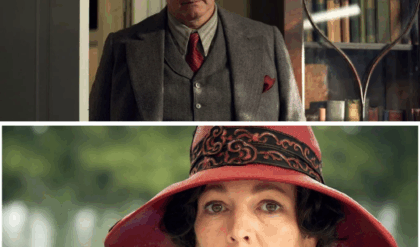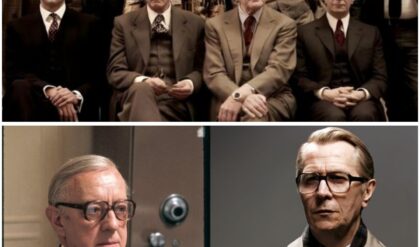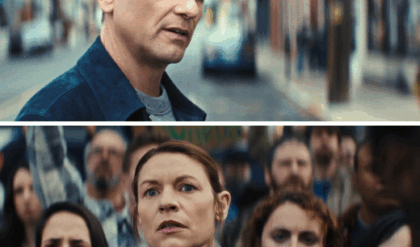
“True Detective: Night Country”
Michele K. Short/HBO
It’s Raymond Clark (Owen McDonnell), the heartbroken killer of “True Detective: Night Country,” who gets the famous line from the series (and its beloved first season): “Time is a flat circle.”
He’s talking about a lot of things — most explicitly, the spirit of Annie K. (Nivi Pederson) that he believes lives in the ice caves around them — but he’s also talking about “True Detective” and the very nature of episodic storytelling itself. Stories are told and retold and repackaged and remixed, genres interwoven, resolutions reached.
And “True Detective: Night Country” did a damn good job with all of that.
Following now-deleted comments from series creator Nic Pizzolatto on social media, audiences learned early on that not only did Pizzolatto not actually have a hand in the creation of the fourth season of the HBO series, but he didn’t particularly care for the direction it took (he has since returned to social media to repost negative comments about the finale).
Meanwhile, “Night Country” showrunner Issa López has spoken freely about inspirations and connections between her season and the show’s origins, telling IndieWire: “We can get the same feeling and emotion by telling a completely different story that you haven’t seen. It will feel like new and it will give you what you crave. … [Seasons 1 and 4 are] complimentary pieces.”
And López’s creative choices pay off in spades. By highlighting from the outset that this is a story driven by women, she doled out hints at how the season would conclude — not in a tragic female death meant to drive male-focused stories, but in an act of collective female rage and vigilante justice that even officers Danvers (Jodie Foster) and Navarro (Kali Reis) end up allowing. Those responsible for the Tsalal scientists’ deaths hide in plain sight, overlooked and underestimated, just as Annie was — just as the entire Native community of Ennis is while those in power profit off their suffering and the toxic mine that is the root of so much of it.
TV has always loved a good murder mystery, but “Night Country” upped the ante from start with two: the frozen scientists and Annie’s unsolved case from six years earlier. The show also pulled off a masterful balancing act by weaving in just enough of the supernatural — resulting in maximum suspense and moments of pure horror (IndieWire’s Ben Travers has already cited a scientist waking up from the corpsicle, while I’m going with any of the classic ghostly jump scares). The eerie Alaska night setting gives everything a baseline sense of dread, probing at the ubiquitous fear of dark that everyone must overcome — but never forgets.
 “True Detective: Night Country”Courtesy of Michele K. Short / HBO
“True Detective: Night Country”Courtesy of Michele K. Short / HBO
None of this works without strong characters, which are everywhere in “Night Country.” Even in the less-formed storylines — Peter’s work/life balance and relationship with his father, that whole mail-order bride situation — everyone feels understandable and lived in; peripheral figures like Fiona Shaw’s Rose or Joel Montgrand’s Qavvik still have desires and backstories while they serve the greater arc or more central figures. No matter how much or how little screen time a character has, none of them are mere props.
And while mileage may vary on “Night Country” between the type of feedback Pizzolatto reposted and high praise like IndieWire’s B+ review of the finale, it’s unlikely that the show will return to Pizzolatto’s jurisdiction and vision ever again.
Time might be a flat circle, but it also moves inexorably forward — and so does television. “Night Country” showed how to push boundaries and broaden the scope of an existing property, a mystery that still seems to elude so many Hollywood creators.





